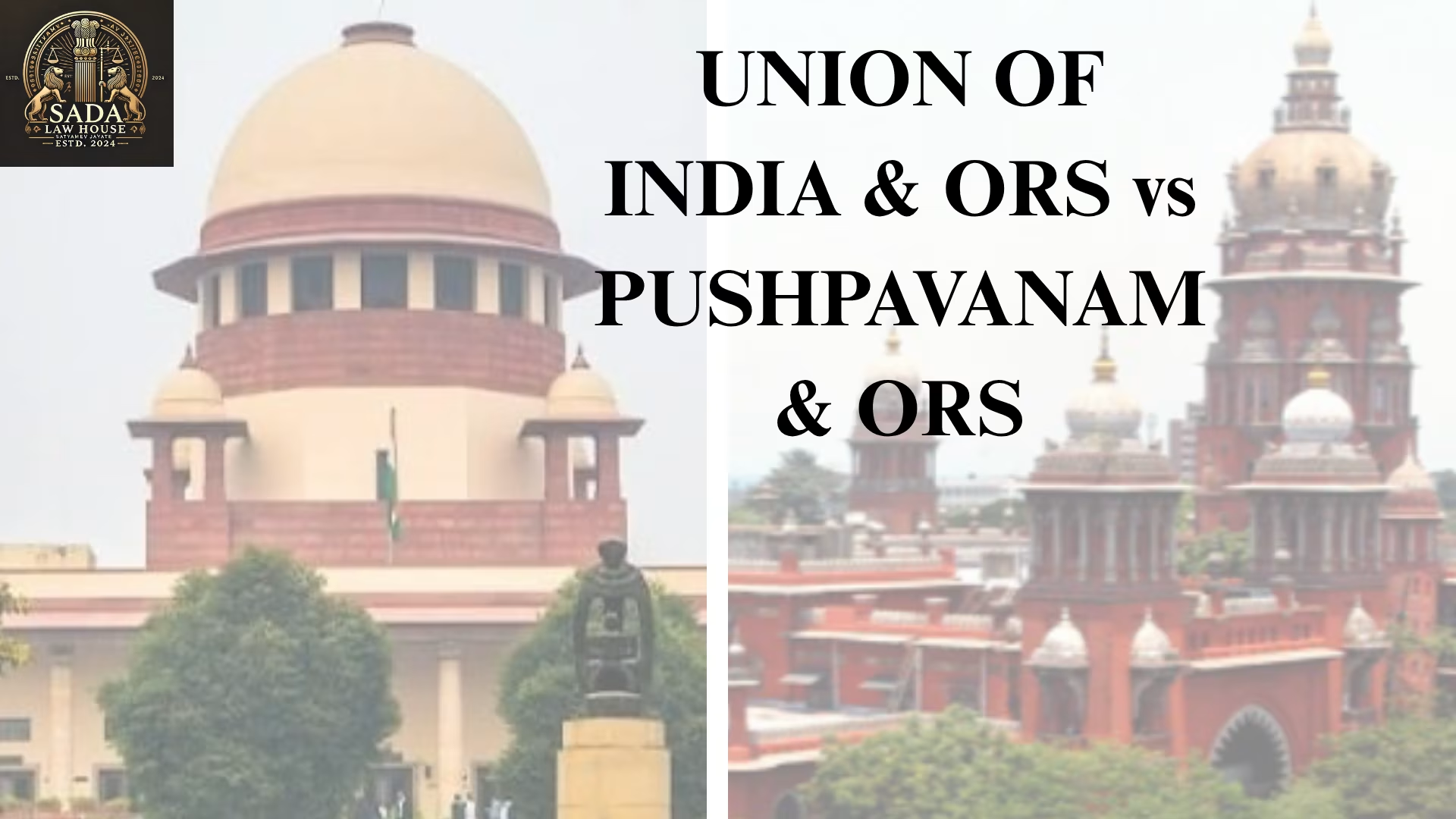Union of India & Others v. K. Pushpavanam & Others (2023)
- Nisha Kumari
- 16 October, 2025

Introduction
The Supreme Court of India, in Union of India & Others v. K. Pushpavanam & Others (decided on August 11, 2023), examined critical constitutional questions regarding the separation of powers and the limits of judicial intervention in legislative matters. The case stemmed from a Madras High Court judgment that directed the Central Government to enact a comprehensive Tort Law and to restructure the Law Commission of India. The Union of India challenged the High Court’s order, arguing that such directions compelled the legislature to perform a sovereign function, violating the principle of separation of powers. The Supreme Court’s ruling clarified the boundaries of judicial power in policymaking and reaffirmed that courts cannot mandate Parliament to enact laws.
Facts of the Case
The respondents, including K. Pushpavanam, filed a writ petition before the Madras High Court, seeking judicial directions to the Union Government for the enactment of a comprehensive law on torts and State liability. They argued that despite several Law Commission reports highlighting the need for codified tort law, the absence of such legislation deprived citizens of effective legal remedies for negligence or wrongful acts by the State.
The petitioners also urged the court to direct the Central Government to:
Introduce a Tort Law Bill within a fixed timeframe.
Make the Law Commission a statutory or constitutional body.
Fill vacant posts and ensure proper functioning of the Commission.
On June 15, 2021, the Madras High Court allowed the writ petition and issued five mandatory directions to the Union of India, including the introduction of a Tort Law Bill within six months.
Aggrieved, the Union of India appealed to the Supreme Court, arguing that the High Court had exceeded its jurisdiction by encroaching upon the legislative domain, a function exclusively vested in Parliament.
Issue of the Case
Whether the High Court was constitutionally justified in issuing mandatory directions to the Union of India to introduce a Tort Law Bill and restructure the Law Commission, thereby encroaching upon the legislative and executive domains in violation of the doctrine of separation of powers.
Judgment
The Supreme Court, on August 11, 2023, set aside the directions issued by the Madras High Court, holding that the judiciary cannot compel the legislature to enact a particular law or set a timeframe for doing so. The Bench, comprising Justices Abhay S. Oka and Sanjay Karol, underscored that:
The separation of powers is a cornerstone of the Constitution, and each organ—the legislature, executive, and judiciary—must function within its prescribed limits.
While courts may highlight legislative gaps or recommend reforms, they cannot issue binding directions that interfere with legislative discretion.
The Law Commission’s structure and functioning fall within the executive’s domain, and there exists no enforceable right compelling the government to grant it statutory or constitutional status.
Accordingly, the Court converted the High Court’s directions into non-binding recommendations, ensuring respect for institutional boundaries while acknowledging the importance of tort law reform.
Conclusion
The Supreme Court’s decision in Union of India v. Pushpavanam reaffirmed that courts cannot dictate legislative action, nor can they compel Parliament or the executive to perform their constitutional functions. By striking down the High Court’s mandatory directions, the Court reinforced the constitutional doctrine of separation of powers and maintained the delicate balance between the judiciary and other state organs. The judgment serves as a guiding precedent, emphasizing that judicial activism must not evolve into judicial overreach and that policy-making and law enactment remain sovereign functions of the legislature and the executive.
Case Laws






